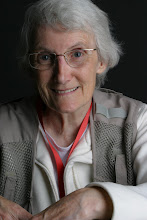TA HUNGERS What Berne says:
GPP p13-15 - 1964Stimulus hunger
• Need for physical contact, skin to skin.
• Learn to do with symbolic forms of handling
Recognition-hunger
• Need for verbal stroking
• Any strokes are better than no strokes
• Gentle handling and painful electric shocks were equally effective in promoting the health of [research] animals
Structure-hunger
• What do you say to her (him) then?
• Nothing is more uncomfortable than .a period of silent, unstructured time when no one present can think of anything more interesting to say than: ‘Don’t you think the walls are perpendicular tonight?’
WDYSAYSH p21 - 1972Stroke/ Stimulus Hunger – Touch me and show me I’m alive – Stimulate me and give me a taste of living
• Need for sensation (why roller coasters make money)
Recognition Hunger – Call me by my name and tell me who I am
• Only be supplied by another human being (or animal)
• Milk is not enough, need for sound of mother’s voice, smell, warmth, touch
Structure Hunger – keep me occupied so I’ll know what’s going to happen
• Uneasy with unstructured time
• Why groups tend to grow into organizations
• Why time-structurers are among the most sought after and most highly rewarded members of any society.
SIHL PP191-193 - 1970Six hungers:
• Stimulus hunger for sensory stimulation of sight and sound and touch, with smell and taste as a bonus for gourmets.
• Recognition hunger, for a special kind of warmth and contact in deeds or words.
• Contact hunger, for physical stroking, although some people settle for pain, or even come to prefer it
• Sexual hunger, to penetrate and be penetrated, which gratifies the other hungers while it happens.
• Structure-hunger is more widespread, and almost as damaging as malnutrition or malaria. When it becomes acute, it turns into incident-hunger, which causes many people to get into trouble and make trouble just to relieve their boredom …
• Incident hunger
• Satan finds some mischief still for idle hands to do
• Keep the troops busy (no matter how) or they’ll lose their morale and their respect for you to boot.’.
Not everybody is comfortable with all six.
Social, biological, psychological
Initially physical, then can be symbolicClaude Steiner - (article)Any complete theory of behavior requires an explanation of the motivation, the moving force, the energy that causes behavior. When accounting, as any scientific psychologist must, for why people engaged in transactions at all, Berne framed his explanation in terms of the need for stimulation. It was here that he prefigured the issues that, in my opinion, will become central in XXI century psychology and psychiatry; information hunger.
Hardgaden & Sills Transactional Analysis: A Relational Perspective p6 We believe that our deepest motivation is for contact with others and that a sense of ‘cohesive self’ develops through the quality of the relationship.
MOTIVATIONDefine Motivation Motivation is simply
- The reason for an action
- That which gives purpose and direction to behaviour.
Motivation is “WHAT drives you” to behave in a certain way or to take a particular action. It is your WHY.
If YOUR “WHY” IS BIG ENOUGH, THE HOW DOESN’T MATTER
INTERNET QUOTESTransactional analysis is a tool which managers can learn to use to increase their motivation, to stop "game" playing and to put their own organizational lives into perspective. The "TA" approach to management is clearly job-oriented and pragmatic. It is a simplified approach to understanding why people act the way they do and what can be done to promote more effective human behavior.
(
Washington University)
MASLOW team building and motivation. © Alan Chapman 1995-2007
© Abraham Maslow original Hierarchy of Needs concept; Alan Chapman review and other material, design, code 1995-2008.
WHICH OF THESE WORK AS MOTIVATORS FOR YOU?
INTERNAL MOTIVATORSThoughts?
Feelings?
Standards/Principles
Needs?
Wants?
Self-encouragement/stroking
EXTERNAL MOTIVATORSOther People’s example?
What I think other people might think?
Rewards /positive strokes?
Punishments /negative strokes?
Expected Outcomes?

